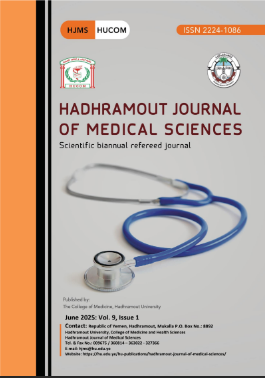5) Assessment of Prescription and Intake of Iron Supplements among Pregnant Women who Attend Primary Healthcare Centers in Al-Mukalla District
Keywords:
Prescription, intake iron supplement, iron deficiency anemia, pregnant womenAbstract
Background: Iron is essential for several physiological functions in the body. Anemia in pregnancy has many detrimental effects on maternal and child health.
Objective: The objective of this study is to evaluate patterns of iron supplement prescription and adherence among anemic pregnant women receiving antenatal care at primary health care centers in Al-Mukalla district, Yemen.
Methods: This was a descriptive cross-sectional study carried out in primary healthcare centers in Al-Mukalla district in 2020. The total sample size in this study was 380 of anemic pregnant women. Data was collected by using a validated, self-administered questionnaire.
Results: The most common age group among anemic pregnant women was 18 to 35 years (92.4%). Primary school was the most educational level of them (43.7%). Most pregnant women were housewife's (86.3%) and multigravida (68.9%). Ferrous fumerete is the most commonly iron supplement received by pregnant women (75.30%). The most frequently prescribed dose of iron supplements ranged from 30 to 60 mg/day (65.5%) for less than three months (87.9%). Water is the most commonly dinking type that pregnant women take with iron supplements (91.1%).
Conclusion: This study revealed that iron was used with an appropriate dose but with inappropriate duration. Most of pregnant women were used iron with water. Ferrous fumerete is the most commonly used type of iron supplements.




